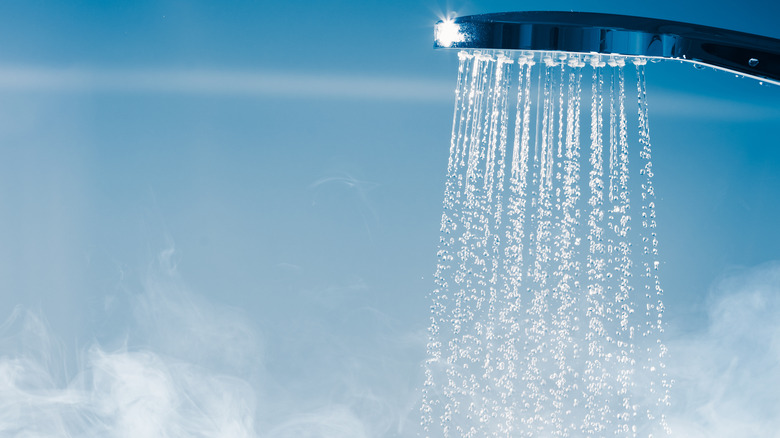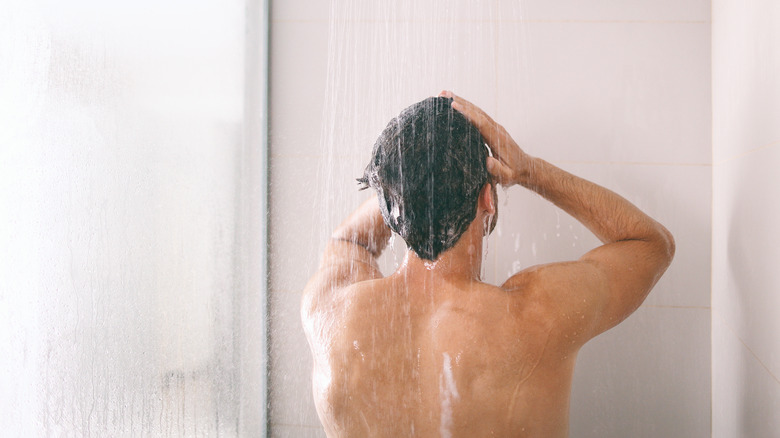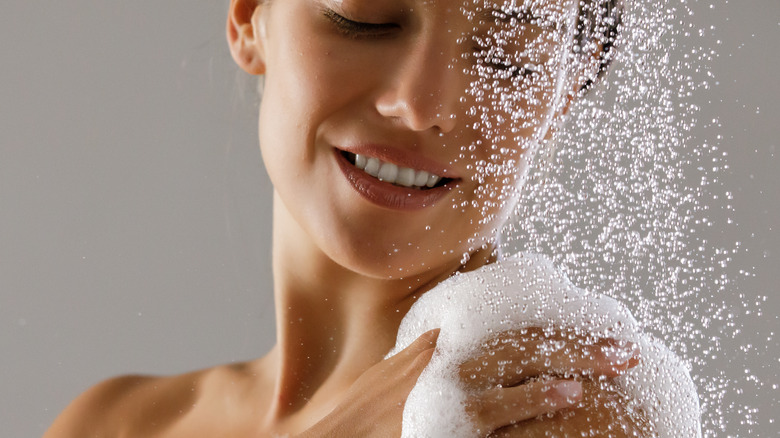The Real Reason You Should Make The Switch To Showers
Just as there are morning and evening bathers, there are bath people and shower people. Whether you rinse or soak to get clean, people's bathing and shower habits vary: According to Harvard Health Publishing, about two-thirds of Americans shower every day while experts maintain that you should shower (or take a bath) at least three times a week. The article notes that too much showering can dry out your skin and disrupt its protective barrier. On the other hand, not enough showering could lead to a decline and hygiene and increased body odor — it's all about balance.
Cold showers can change your life, offering plenty of benefits like helping you relax and even lose weight. But baths also offer benefits; according to the Cleveland Clinic, they can boost your mental and physical health and can help you sleep better, soothe muscles and joints, and help heal wounds.
So, which is better, showers or baths?
Showers or baths? Which one is better for the environment?
You'd think a bath uses more water than a shower and is therefore more water-wasteful than a shower. But a shower is a continuous stream of water. So, which one uses less water?
A 2015 article by Grist, a nonprofit and media organization dedicated to climate solutions, concluded that showers are more environmentally friendly than baths, but not by much. Grist looked into data from the United States Geological Survey as well as the Environmental Protection Agency, and crunched some numbers: Grist found that the typical bathtub uses 20-30 gallons of water. If you use a standard 2.5 gallon-per-minute showerhead for the average eight to 12 minute shower (per the EPA), you'd also consume about 20-30 gallons of water. In short, showers are more water-efficient, but not by much.
But showers are generally preferred for their brevity. The Independent reported that a Victorian Plumbing survey found that 57% of British respondents preferred showers over baths. Of those pro-shower respondents, three quarters said showers were preferable because they were faster. Indeed, showers are better for the environment so long as they're short, which is how most people shower.
How to make showers even more eco-conscious
Since the water efficiency of a shower is proportional to the time you spend under the showerhead, it's not often a reliably more efficient means of getting clean. But there is a solution.
According to the Environmental Protection Agency, if every household installed a low-flow showerhead, the United States could reduce its water consumption by 260 billion gallons a year and cut our utility bills down by $2.9 billion. You'll know you've found a legit low-flow showerhead if you see the WaterSense label, which, according to the EPA, guarantees the showerheads are "20% more water efficient than average products in that category."
But are low-flow showerheads good? Or will it feel like a low-pressure version of a normal shower? Or perhaps an unsatisfying mist? A reviewer in Stanford Magazine assures readers low-flow showerheads are not a compromise on the quality of your showering experience.


